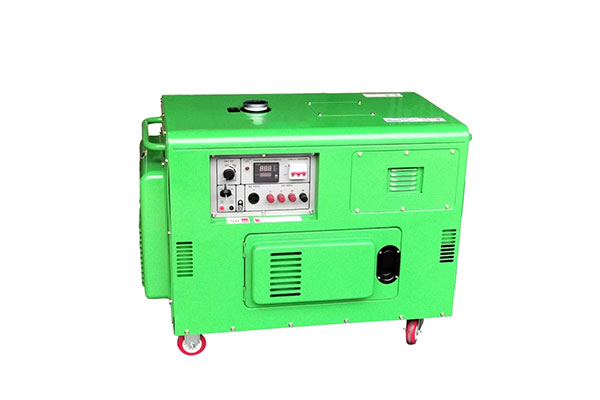How Do Gasoline Generators Work?
Gasoline generators have become indispensable in situations where a stable power supply is crucial. Whether it’s for emergency backup power, outdoor events, or remote locations, understanding how gasoline generators work empowers you to harness their potential effectively. In this comprehensive guide, RoadSky will explore the intricate mechanisms behind gasoline generators, from fuel combustion to electrical output. By unraveling the secrets of these versatile machines, you will gain insights into their inner workings and make informed decisions when choosing, operating, and maintaining a gasoline generator.

The Basic Components of a Gasoline Generator
- Engine: The heart of a gasoline generator is its internal combustion engine, typically fueled by gasoline. The engine consists of key components like a cylinder, piston, crankshaft, and valves. As the engine operates, the piston moves within the cylinder, creating the necessary mechanical energy.
- Fuel System: Gasoline generators store fuel in a designated tank. From there, the fuel is drawn into the carburetor, where it mixes with air to create a combustible vapor. The carburetor ensures the proper fuel-air ratio for efficient combustion.
- Ignition System: The ignition system initiates the combustion process. It includes a spark plug positioned near the cylinder. When the generator is activated, the ignition system generates an electric spark that ignites the fuel-air mixture, resulting in controlled explosions within the engine.
Power Generation Process
- Alternator: The alternator is responsible for converting the mechanical energy generated by the engine into electrical energy. It consists of a rotor and a stationary stator. As the engine spins the rotor, a magnetic field is generated, inducing an electric current in the stator windings. This current is then harnessed as electrical power.
- Voltage Regulation: Maintaining a stable voltage output is crucial for the safe operation of electrical devices. Gasoline generators employ voltage regulation mechanisms to achieve this stability. Automatic Voltage Regulators (AVRs) or capacitors are commonly used to regulate and control the voltage output within an acceptable range, regardless of the load.
- Output Panel: Gasoline generators are equipped with output panels that provide electrical sockets for connecting devices. These panels feature different types of outlets, such as standard household plugs, twist-lock outlets, and USB ports, to accommodate various appliances and electronics.
Key Considerations and Safety Measures
- Power Capacity and Load Management: Understanding the power capacity of your generator and the power requirements of your devices is crucial to avoid overloading. Gasoline generators have a rated power output measured in watts. By calculating the wattage of your appliances and distributing the load appropriately, you can optimize performance and prevent damage to the generator.
- Safety Features: Gasoline generators incorporate several safety features to protect users and equipment. These features include circuit breakers, grounding terminals, low-oil shutdown mechanisms, and automatic voltage regulation. Familiarize yourself with these safety features and follow the manufacturer’s guidelines to ensure safe operation.
- Maintenance and Fuel Considerations: Regular maintenance is essential for the longevity and optimal performance of a gasoline generator. This includes changing oil, cleaning or replacing air filters, inspecting spark plugs, and ensuring proper fuel storage and usage. Adhering to recommended maintenance schedules and using clean, fresh fuel is crucial for reliability.
Tips for Choosing and Operating a Gasoline Generator
- Determining Power Requirements: Assess your power needs before purchasing a generator. Consider the appliances and devices you will be running and their wattage. Opt for a generator with a slightly higher power output to accommodate future needs.
- Portability and Noise Levels: If mobility is important, choose a generator with built-in handles or wheels. Additionally, consider the noise level of the generator, especially if it will be used in residential areas or noise-sensitive environments.
- Proper Ventilation: Gasoline generators emit exhaust gases during operation, which contain potentially harmful substances. It is crucial to operate generators in well-ventilated areas to prevent the accumulation of toxic fumes.
RoadSky and Gasoline Generators
Gasoline generators provide a reliable and convenient power solution in various scenarios. By understanding their components, power generation process, and safety considerations, you can make informed decisions when selecting, operating, and maintaining a generator. Remember to prioritize safety, perform regular maintenance, and follow the manufacturer’s guidelines for optimal performance. With this knowledge in hand, you can confidently harness the power of gasoline generators to meet your energy needs in any situation. If you are looking for gasoline generators for your project, you can contact RoadSky experts directly for more information.

